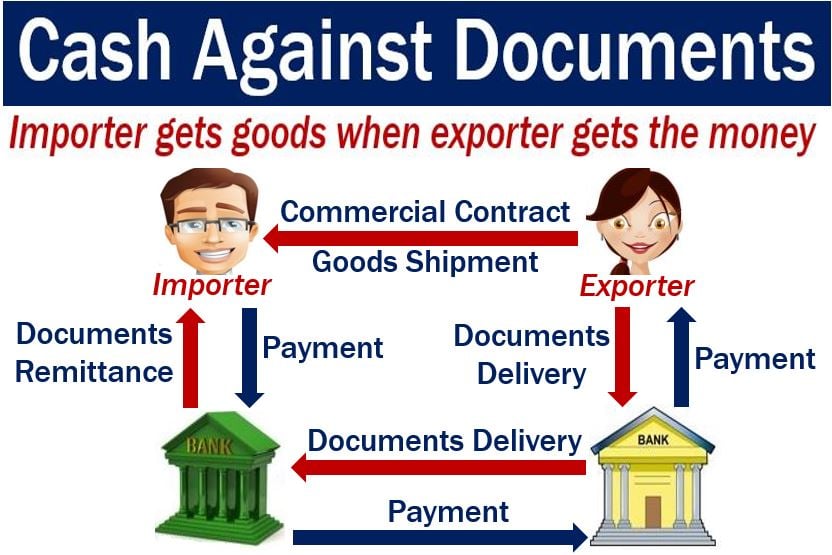Cash against documents – definition and meaning
Cash against documents or CAD is a kind of transaction we use in international trade. Buyers receive the title for goods they bought after they have paid the full amount. In other words, the importer will only get the goods after paying for them in full. International trade refers to trade between nations – imports and exports.
A financial institution such as a commission house manages the transfer of the title documents after confirming the cash payment.
Exporters sometimes insist on a CAD arrangement. After receiving and accepting an order from an overseas customer, the exporter prepares the necessary export documents. These are documents that both the country of origin and the destination require.

Cash against documents – the procedure
The set of documents contains an Export Collection Form, which the exporter’s bank receives. Some exporters prepare a Bill of Exchange and also include that with the other forms.
The exporter’s bank sends the relevant documents to the importer’s bank. The importer receives these documents after paying for the order. Completion of the deal occurs when the exporter’s bank receives the money.
Traders typically use CAD terms when the importing country’s government requires tax stamps affixed to drafts. By eliminating the draft, both the exporter and importer avoid stamp taxes.
For exporters, the cash against documents system means they are certain they will get their money.
However, for importers, there is an element of risk. Importers will not know whether the goods they bought are up to standard before parting with their money.
In fact, the importer cannot reclaim funds after payment, unless the seller agrees.
According to Cambridge Dictionaries Online, cash against documents is:
“A financial arrangement in which someone can only collect goods they have imported after paying for them at the bank and showing proof that they have paid.”

